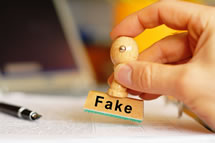
The Pennsylvania Department of Education is looking into a report that has surfaced highlighting possible cheating on state standardized tests in at least 35 districts and noting aberrant scores in dozens of others, a spokesman said Tuesday.
The forensic analysis of the 2009 Pennsylvania System of School Assessment results does not assert cheating occurred, but says certain answer patterns and erasures make the results suspicious.
Among the school districts identified as having multiple testing irregularities are Philadelphia, Hazleton, Connellsville and Lancaster. Many other districts were cited for one or two inconsistencies.
The department was unaware of the report–issued in July 2009 under a previous administration–until it was published Friday by The Notebook, an independent news service covering the Philadelphia school district, said Timothy Eller, a spokesman for Education Secretary Ronald Tomalis.
“It’s very frustrating to the secretary that nothing was done in the past with it,” Eller said. Tomalis became education secretary earlier this year in new Republican Gov. Tom Corbett’s administration.
Then-Education Secretary Gerald Zahorchak, who served under Democratic Gov. Ed Rendell and is now superintendent of the Allentown schools, declined comment on Eller’s remarks. He said he had not seen the report, but such assessments are conducted routinely by the company that administers the tests, and any subsequent investigation would be handled by a standards and practices commission and the results noted in their annual reports.
“These are not unusual,” he said. “These are normal things…I can almost guarantee you that many superintendents would say to you ‘Yeah, we’ve been notified about people trying to influence inappropriately the PSSA work.’ It’s something the department and the state does very, very well–investigate and get to the bottom of complaints.”
The news comes days after officials in Georgia revealed a massive cheating scandal in Atlanta, with nearly half of the city’s 100 schools involved. State investigators said 178 educators had fudged standardized tests used to meet federal benchmarks dating back to 2001.
That same week, the U.S. Department of Education began looking into cheating allegations in Washington, D.C. Over the past several years, such scandals have surfaced in school districts in Baltimore and Houston, as well as Texas, Michigan and Florida.
Experts say many districts can feel pressured to meet testing standards to avoid penalties under the federal No Child Left Behind (NCLB) legislation, or to ensure positive results for teachers who are rewarded based on student performance.
In Pennsylvania, the PSSA is given annually in various grades to assess math and reading skills. Minnesota-based Data Recognition Corp. analyzed scores from 2009 and found hundreds of aberrant results, and singled out in the report about 90 schools with the most flags.
Based on statistical properties, the report said the suspect results were “highly improbable.”
It noted that any possible fraud could have been perpetrated by students, teachers or other officials. But the company also stressed that the scores could have been obtained fairly.
“Their scores, response pattern, and number of erasures were aberrant, from a statistical probability perspective,” the report states. “This does not imply that the school or student engaged in inappropriate testing activity.”
The Philadelphia schools are willing to investigate the cheating allegations, but spokeswoman Jamilah Fraser said in a statement that such probes are difficult because of teacher turnover, student transience and the vagaries of memory.
The district has received about 10 to 15 accusations of breaches in test security in each of the past three years, and a few have been substantiated through internal investigations, Fraser said. Alleged violations could range from “low-level” offenses, such as failing to cover materials during a testing period, to more serious ones.
She also noted the district has a “very robust test monitoring protocol.” Approximately 75 percent of schools, including charters, receive unannounced visits to random classrooms during PSSA testing, Fraser said.
In Connellsville, interim Superintendent Tammy Stern said she was a high school principal during the 2009 exam period. She heard nothing about cheating at the time.
“I’m not aware of any problems or improprieties,” Stern told The Associated Press.
Lancaster district spokeswoman Kelly Burkholder said discrepancies in student enrollment and attendance led to the flags for three schools cited in the report.
“Our flags are not a result of testing impropriety but a result of our highly mobile population,” Burkholder said.
Hazleton officials were not available for comment July 12.
It’s not clear how often forensic audits were conducted under the previous administration, Eller said. The July 2009 report refers to that being “the first year of data forensic analyses for the PSSA.” A Data Recognition Corp. spokeswoman declined comment.
Eller noted the department’s 2010 budget had no money for audits, but that Tomalis has ordered them reinstated for this year.
Democratic state Rep. Michael McGeehan, of Philadelphia, said in a statement that he met last weekend with a group of Philadelphia teachers who alleged cheating at their school.
On July 12, he suggested that Tomalis create a “whistleblower hotline” for educators to report allegations of wrongdoing without fear of retaliation.
- ‘Buyer’s remorse’ dogging Common Core rollout - October 30, 2014
- Calif. law targets social media monitoring of students - October 2, 2014
- Elementary world language instruction - September 25, 2014

